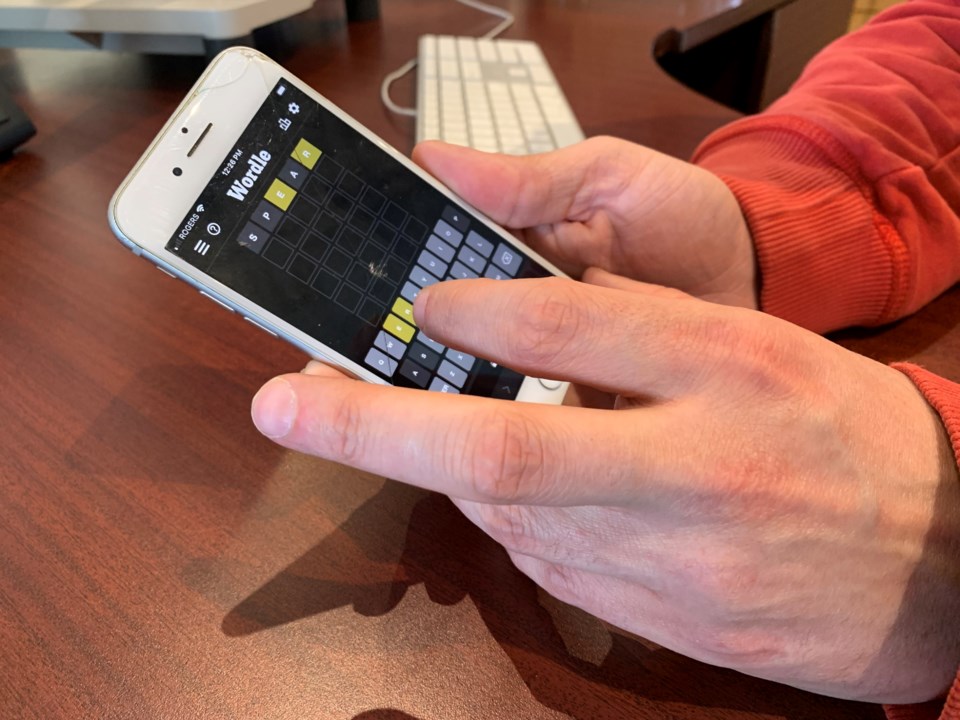By now, if you haven’t already joined the hundreds of thousands of people playing Wordle every day, chances are high you’ve at least heard of the viral word game that has taken the English-speaking world by storm.
Because I can only tolerate FOMO for so long, I recently jumped on the Wordle bandwagon as well, and as much as I’ve enjoyed playing it (I’m pretty good at Wordle, you guys), I’ve also been left scratching my head at its unlikely success.
For the uninitiated, the game is pretty basic: You get six tries to guess a five-letter word, with the colour of the five tiles changing depending on how close you are. Green means you’ve got the right letter in the right spot, while yellow indicates you’ve got a letter in the word, but in the wrong spot.
Simple, right? Not exactly reinventing the wheel or anything, and there are countless word games out there like it. So how to explain its massive popularity? Well, like so many things, the devil is in the details. First, it’s easy to pick up and understand, and offers just enough of a challenge to feel like an accomplishment, but not so difficult that it alienates new players. That you can only solve one Wordle every 24 hours is another key feature, with creator Josh Wardle saying he wanted the puzzle to feel like a croissant, “a delightful snack” only eaten occasionally. “Enjoyed too often,” he wrote in a Reddit post, “and they lose their charm.”
But Wordle’s real draw, for my money, is the fact that everyone is solving the same puzzle at the same time, a not-insignificant appeal in such fractured times. With our entertainment landscape as bloated as ever, there are far fewer cultural touch-points for us to connect over. Top 40 radio has been subsumed by highly personalized streaming playlists, appointment prestige TV went by the wayside with Game of Thrones, and blockbuster superhero flicks seem to be the only movies coming out of Hollywood these days to capture the zeitgeist. So having a fun little puzzle the world can toil away on—and, crucially, complain about—together in real time is all the more welcome in times like these. For me personally, it’s given me an excuse to reach out to friends I wouldn’t normally on a daily basis, if only to brag (or whinge) about my score. Tellingly on that front, Wordle only really took off after a feature was added in December allowing players to share their scores without giving away the word of the day (that’s why all those posts with green, black and yellow Tetris-like blocks have been taking over your Twitter feed).
I think Wordle also benefits from a cute pandemic-related origin story. Wardle, a software engineer living in Brooklyn, developed it for his word game-loving partner, and for a time, Wordle was just a two-player affair. Eventually it caught on in the Wardle family’s group chat, and in the span of just two months, went from having about 90 people playing a day to more than 300,000. In January, Wardle struck gold when the New York Times bought the game outright for a sum in the low seven figures, a happy ending to a pandemic love story.
But that doesn’t mean Wordle has been free of drama. Since the media giant acquired the game, there have been scores of players accusing the NYT of intentionally making it harder by “choosing words that are too obscure or, conversely, too basic and just generally being New York Times-y about it,” wrote the Irish Times. The Old Gray Lady has flatly denied this, even issuing a statement saying it hasn’t added any words to the original master list, and in fact made the game easier by removing several words it thought were too challenging—but that hasn’t stopped the conspiracy theories from flourishing online. Twitter user Matthew Shallenberger, in a thread that has garnered more than 100,000 likes, posited that the backlash speaks to an entrenched confirmation bias that can help us understand the rise of conspiracy thinking over the past two years. He argued that many people are already set up to dislike the NYT for their own reasons and after struggling with “a puzzle or two” find it easier to blame them for making the game harder.
“But here’s the really interesting part: even when you show these people the evidence that Wordle isn’t actually harder, some of them don’t believe it. Why? Because it doesn’t feel true,” he wrote. In such instances, we tend to trust our gut more than other people’s facts, especially if that gut feeling is informed by lived experience.
“And that’s how conspiracy theories work,” Shallenberger went on. “They play on both our feelings and our preconceived biases. That combination is powerful, and it’s why conspiracy theories are so resistant to debunking. It doesn’t matter how much evidence you supply to disprove the theory.”
Two weeks ago, I thought Wordle was nothing more than a passing fad, but after delving into its surprising success in these strange, divisive times, I’ve realized this latest viral trend represents so much more than just a game.




